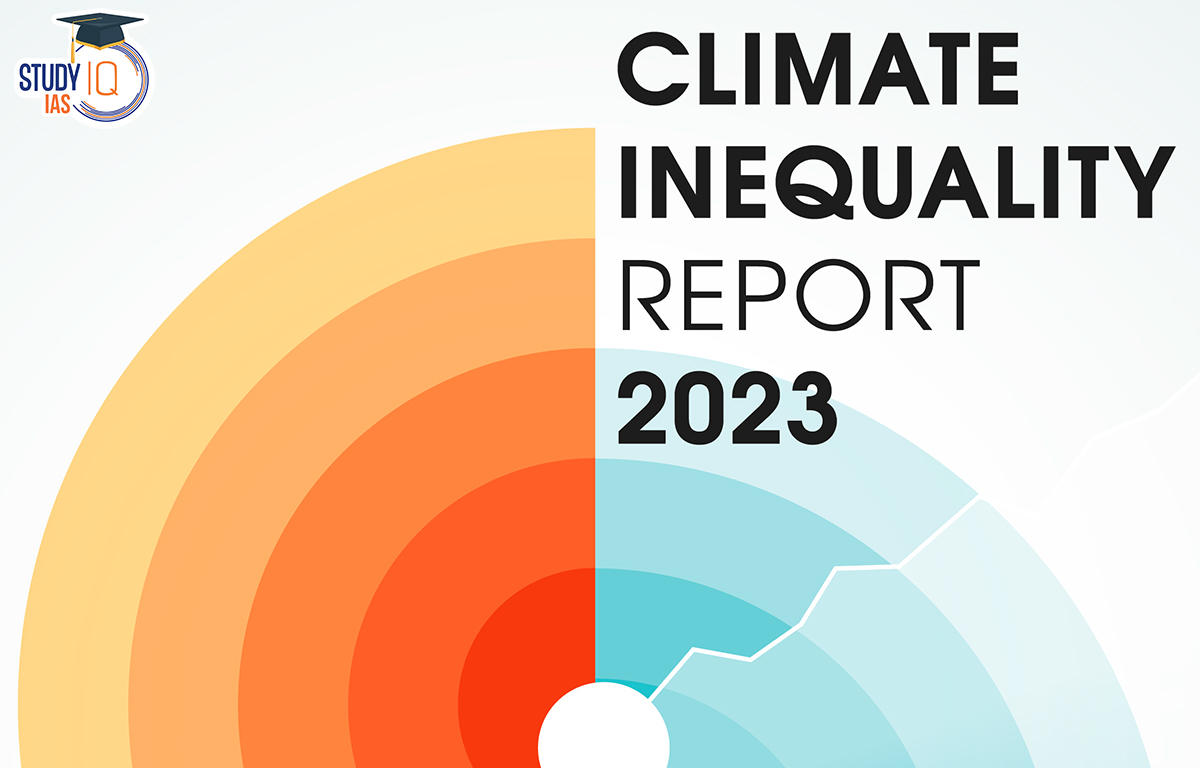Table of Contents
Context: Economists from the World Inequality Lab at the Paris School of Economics have recently published the Climate Inequality Report 2023.
About the Climate Inequality Report 2023
- The objective of the report was to decode the magnitude of climate inequality based on a detailed systematic analysis focusing on low- and middle-income countries.
- The authors have coupled this analysis with empirical data and studies to advocate advanced pathways to develop taxing and social policies that combat climate inequalities at their centre.
Important Findings of the Climate Inequality Report 2023
- Global carbon inequality: The report compared the global bottom (50 per cent), middle (40 per cent) and top (10 per cent) income countries to provide a perspective on climate inequalities.
- The report found that 48 per cent of emissions is from the top 10 per cent of emitters, having 76 per cent capacity to finance, and their relative loss is a mere 3 per cent from climate change.
- However, the global bottom (50 per cent) has only a 2 per cent capacity to invest, with an emission of 12 per cent and a massive relative loss of 75 per cent.
- Within-country inequality: The gap between the carbon emissions of the rich and the poor within a country is higher than the difference in overall emissions among countries, the report said.
- Inequality in impacts:
- Agricultural losses: Many low-income regions are facing agricultural productivity losses of 30% and more due to climate change which aggravates poverty and food insecurity.
- Poverty and climate change: Over 780 million people globally are currently exposed to the combined risk of poverty and serious flooding, mostly in developing countries.
- Global south: Many countries in the Global South are significantly poorer today than they would have been in the absence of climate change.
- Income losses: The income losses from climate hazards of the bottom 40% are estimated to be 70% larger than the average in low- and middle-income countries.
- Impacts of climate change:
- Economic destitution: Climate change contributes to economic destitution in many ways such as lowering agricultural productivity, climatic migration due to extreme events etc.
- Agricultural productivity: Some temperate countries are seeing their agricultural productivity increase under global warming. In contrast, many subtropical and tropical countries are facing significant output losses due to global warming.
- Mental health: A 1 degree Celsius increase in monthly average temperatures increases suicide rates by 0.7 per cent in the US and 2.1 per cent in Mexico, the report noted.
Way forward/ Key Recommendations by the Report



 Daily Quiz 17 April 2025
Daily Quiz 17 April 2025
 Nilgiri Biosphere Reserve, Map, Climate,...
Nilgiri Biosphere Reserve, Map, Climate,...
 Complete List of Indian State Animals
Complete List of Indian State Animals





















